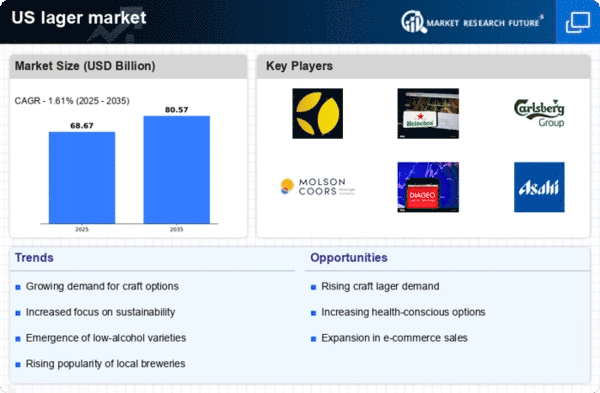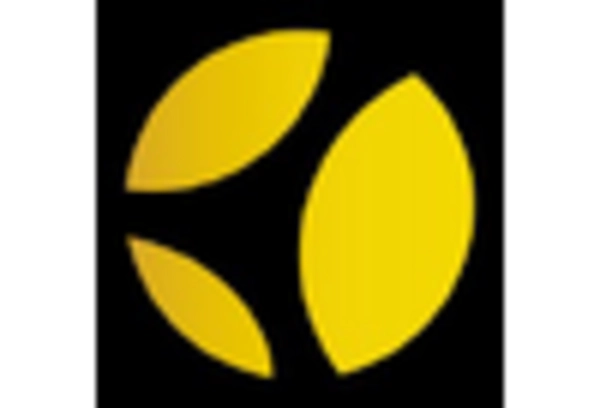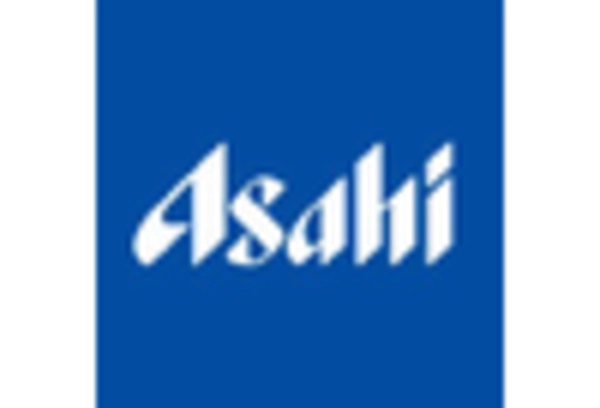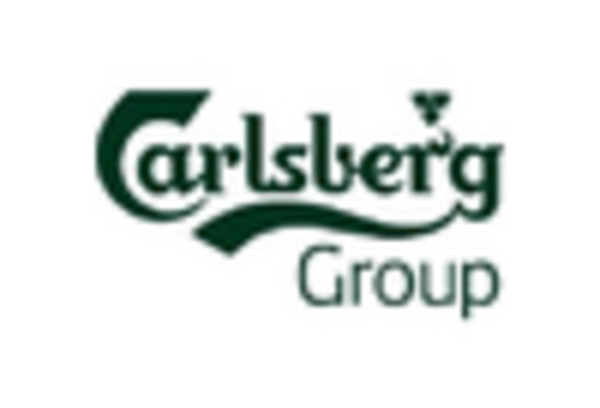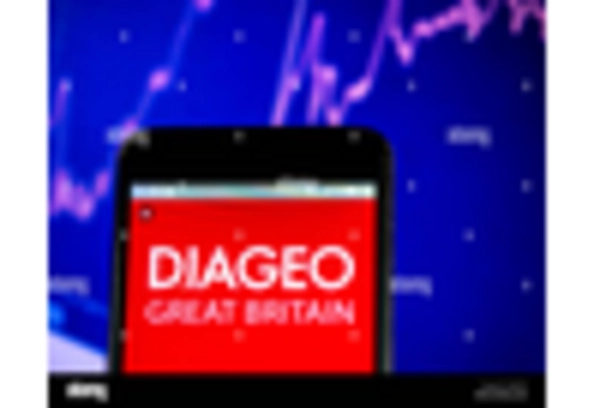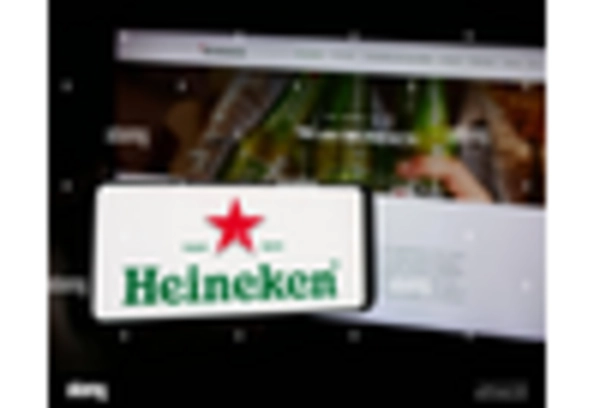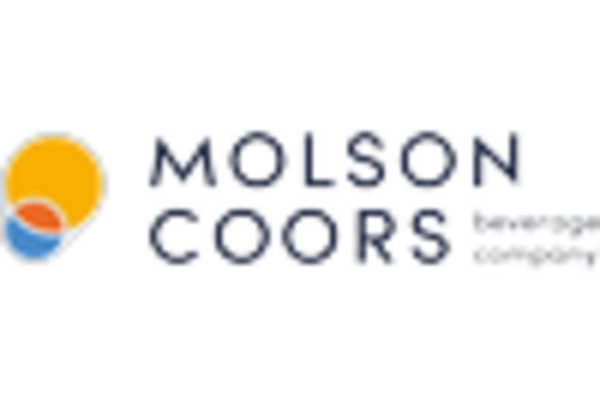Increased Focus on Local Sourcing
The trend towards local sourcing is becoming increasingly prominent within the lager market in the US. Consumers are showing a preference for locally brewed lagers, which they perceive as fresher and more authentic. This shift is encouraging breweries to source ingredients from local farms and suppliers, thereby supporting regional economies. Recent statistics suggest that local breweries have experienced a growth rate of approximately 15% in sales, as consumers gravitate towards products that reflect their community. This emphasis on local sourcing not only enhances the appeal of lagers but also fosters a sense of connection between consumers and producers. As this trend continues, it is likely to further shape the competitive landscape of the lager market, with local brands gaining prominence.
Rising Consumer Demand for Variety
The lager market in the US is experiencing a notable shift as consumers increasingly seek diverse flavor profiles and unique brewing techniques. This trend is driven by a growing interest in craft and specialty beers, which has led to a surge in the production of various lager styles. According to recent data, the craft beer segment, which includes innovative lagers, has seen a growth rate of approximately 20% over the past year. This rising consumer demand for variety is compelling breweries to expand their offerings, thereby enhancing competition within the lager market. As a result, traditional lagers are being reimagined with new ingredients and brewing methods, appealing to a broader audience and potentially increasing market share for innovative brands.
Technological Advancements in Brewing
Technological advancements are playing a crucial role in shaping the lager market in the US. Innovations in brewing technology, such as automated brewing systems and advanced fermentation techniques, are enabling breweries to enhance efficiency and improve product quality. These advancements allow for greater consistency in flavor and texture, which is essential for maintaining consumer loyalty. Furthermore, the integration of data analytics in brewing processes is helping breweries to better understand consumer preferences and optimize their offerings. As technology continues to evolve, it is expected that the lager market will witness increased competition, with breweries leveraging these advancements to create superior products that meet the demands of discerning consumers.
Adoption of Innovative Packaging Solutions
In the lager market, innovative packaging solutions are emerging as a key driver of consumer engagement and brand differentiation. Breweries are increasingly adopting eco-friendly packaging options, such as biodegradable materials and recyclable cans, to appeal to environmentally conscious consumers. This shift is not only beneficial for the environment but also enhances the brand image of breweries. Data indicates that brands utilizing sustainable packaging have seen a sales increase of around 10% compared to those using traditional packaging. As consumers become more aware of environmental issues, the demand for sustainable packaging in the lager market is likely to grow, prompting breweries to invest in innovative solutions that align with consumer values.
Evolving Drinking Habits Among Millennials
Millennials are reshaping the landscape of the lager market in the US, as their preferences and drinking habits evolve. This demographic is increasingly favoring quality over quantity, often opting for premium lagers that offer unique taste experiences. Data indicates that around 60% of millennials are willing to pay a premium for craft lagers, reflecting their desire for authenticity and quality. This shift is prompting breweries to focus on creating distinctive lagers that resonate with this audience. Furthermore, the rise of social media has amplified the visibility of craft lagers, encouraging breweries to engage with consumers through innovative marketing strategies. As millennials continue to influence the market, their preferences are likely to drive further innovation and diversification within the lager market.


